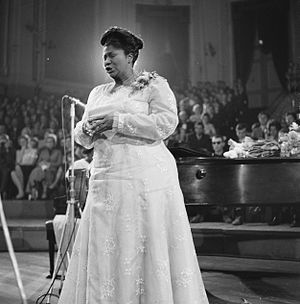Youth Poet Laureate Amanda Gorman and the Perils of Racial Profiling
African American youth poet laureate after being highlighted at the United States presidential inauguration, a private security guard told her she looked “suspicious”

All Global Research articles can be read in 27 languages by activating the “Translate Website” drop down menu on the top banner of our home page (Desktop version).
***
A recent incident involving Amanda Gorman, the United States youth poet laureate, who was hailed after her presentation at the inauguration of recently elected President Joe Biden and Vice President Kamala Harris, revealed the continuing threat of racial profiling.
Gorman, a best-selling and award-winning author of books for adults and children, was walking near her home in Los Angeles, California, when she noticed being trailed by a security guard.
The author was later told that she “looked suspicious”, implicating her as a potential suspect in committing a criminal offense. Such attitudes by police, vigilantes and corporate security agents have often been the precipitating factor in unjust arrests, physical assaults and even shooting deaths.
In response to the experience, the 23-year-old woman said that this was the plight of Black girls in the present period inside a racist country. The episode received national and international press coverage due to the heightened sensitivity and intolerance towards institutional racism and police misconduct.
A post on twitter by Gorman said of the situation that:
“A security guard tailed me on my walk home tonight. He demanded if I lived there because ‘you look suspicious.’ I showed my keys & buzzed myself into my building. He left, no apology. This is the reality of Black girls: One day you’re called an icon, the next day, a threat.”
This tweet from the youth poet laureate illustrates the hypocrisy of the U.S. society in regard to race relations. As a Harvard graduate and renown author, she can be praised for her accomplishments professionally within official circles and the corporate media. Nonetheless, as an African American, the social atmosphere within the U.S. makes her a threat to the stability of the government and economic structures.
Gorman went on to say in a following tweet in response to the provocation:
“In a sense, he was right. I AM A THREAT: a threat to injustice, to inequality, to ignorance. Anyone who speaks the truth and walks with hope is an obvious and fatal danger to the powers that be.”
The statements via Twitter were immediately met with condemnations of the security personnel and accolades of emotional support. Many people within the African American communities across the country and other peoples of color could readily identify with the widely known phenomenon of racial profiling by law-enforcement, private security officers and racist whites in general.
Hundreds of high-profile cases have been given publicity over the last year since the brutal racist executions of Ahmaud Arbery, Breonna Taylor, George Floyd and many others. Demonstrations and rebellions throughout the U.S. heightened the consciousness of the oppressed and working people as a whole in regard to the impact of state-approved targeting and violence. Calls for the defunding and dismantling of police agencies in major municipalities has prompted debate over the role of law-enforcement historically and on a contemporary level.
The youth poet laureate welcomed the groundswell of support through social media, saying:
“I am so thankful for the outpouring of support since the incident last night. It won’t change the truth of what happened, and continues to happen to Black Americans, but it reassures me of what I already know: There is always far more good in this world than bad.”
Gorman has overcome many obstacles in her journey towards academic, intellectual and literary success at such a young age. Born in Los Angeles on March 7, 1998, the product of a single mother who was an educator, he poet laureate worked on an auditory and speech impediment to become an acclaimed writer and public lecturer.
Her life ambitions and goals are related to deep interests in oppressive systems, feminism, race relations, social marginalization and the African Diaspora. A good deal of Gorman’s focus is on mentoring other young women in their desires to realize their full academic, artistic and professional potentials.
Not an Isolated Incident: A History of Racial Profiling and Struggle
Many other African Americans have undergone similar acts of racism as experienced by Gorman. One important figure of the 20th century, Mahalia Jackson (1911-1971), superseded many societal and economic hurdles to win international praise as a gospel singer and social activist.
Jackson was born in New Orleans, Louisiana in 1911 under the draconian post-slavery structures euphemistically known as Jim Crow. Racial segregation was the law of the land in New Orleans during the early 20th century. Although exhibiting talent as a singer of spiritual music, after moving from Louisiana to Chicago, Jackson had to work for several years as a domestic to earn a living.
In 1947, she released a million-selling recording, Move On Up a Little Higher, gaining her fame and stature within the music industry. Despite her success, Jackson was a victim of racist violence in Chicago beginning in 1950.
According to an account of her early success as a public figure:
“Intense racism plagued her, though she had become an international star. When she moved into a white neighborhood in Chicago, someone shot through a window in her home. This struck no fear in her heart but only made her pursue social justice with more vigor. The New York Times reported that she once said, ‘I have hopes that my singing will break down some of the hate and fear that divide the white and black people in this country.’” (See this)
Jackson went on to provide food and other support to poor people in Chicago. She became a committed activist within the Civil Rights Movement befriending Dr. Martin Luther King, Jr. and his Southern Christian Leadership Conference (SCLC) during the 1950s and 1960s. She performed at the historic March on Washington in August 1963 and helped shape the groundbreaking address delivered by Dr. King on that fateful day.
This is just one example of the contradictions existing within U.S. society for artists and public intellectuals. The character of institutional racism is very much an oppressive force hampering the full freedom and right to self-determination among African Americans.
Racism in the U.S. Must be Completely Eradicated
Of course, these are not issues of individual prejudice amongst misguided and uninformed persons, racial profiling and its concomitant dangers, are deeply embedded within the U.S. capitalist and imperialist system. The domestic nature of institutional racism is reflected in the foreign policy imperatives of the ruling class and its military-industrial-complex.
However, Amanda Gorman has already identified her life’s mission related to ending oppression, racism and gender discrimination for African Americans and other people of African descent throughout the globe. Her objective is to become a major contributor in the struggle for human rights.
The fact that Gorman spoke out forcefully after the racial profiling incident is a strong indication of her courage and fortitude. She has also weighed in on the controversy now surrounding revelations of prejudice and racism inside the British royal family as represented by the treatment of Megan Markle, the wife of Prince Harry.
In the widely viewed interview with media personality Oprah Winfrey which aired initially on March 7, both Harry and Megan said they feared for their safety and suffered mental anguish as a direct result of racism within the British monarchy.
Newsweek magazine emphasized in a March 8 article that:
“Amanda Gorman has said the British royal family had missed out on its ‘greatest opportunity for change, regeneration and reconciliation in a new era’ by mistreating Meghan, the Duchess of Sussex.”
Both Britain and the U.S. were instrumental in the Atlantic slave trade, colonialism, and modern-day imperialism. Domestic institutional racism remains prevalent in U.S. and British society.
Therefore, notwithstanding the personal educational and professional achievements of African American women they continue face the pervasiveness of racial profiling and violence. Only a successful struggle to eliminate oppression and exploitation will lay the groundwork for the total eradication of color prejudice and racial discrimination.
*
Note to readers: please click the share buttons below. Forward this article to your email lists. Crosspost on your blog site, internet forums. etc.
Abayomi Azikiwe is the editor of Pan-African News Wire. He is a frequent contributor to Global Research.
All images in this article are from the author


